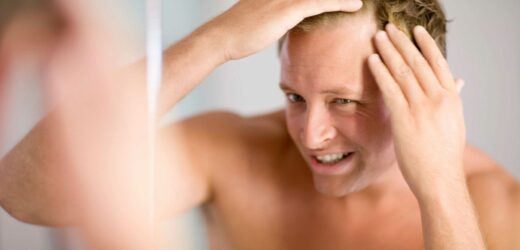A LARGE packet of crisps, bacon sarnie or warming cup of soup.
What do these foods eaten by Brits every day have in common?
They can be loaded in salt, which, according to an expert, may be the reason for your thinning hair.
The most common type of hair loss is called Androgenetic Alopecia, also known as “Male Pattern Hair Loss” or “Female Pattern Hair Loss”.
This typically causes a receding hairline in men and hair loss at the crown of the head in women.
Around half of men over the age of 50 and half of women over the age of 65 are affected, according to Alopecia UK.
But age isn’t the only factor that plays a role.
There are dozens of reasons the hair may thin or fall out, including in young people.
Kevin Moore, a trichologist at regrowz.com, claims that too much salt in your diet can “definitely” damage the health of your hair, and potentially cause it to fall out.
Most read in Health
HIDDEN NASTIES How secret salt in 'healthy' meals make them as bad for you as JUNK food
Daily Covid cases down 24% on last week as Brits no longer need to isolate
'Stealth' Omicron subvariant up to 60% more contagious – but is 'just as mild'
The 10 life-threatening Omicron side effects plaguing Covid survivors
He told British GQ: “Consuming too much salt will cause a build-up of sodium which will then develop around hair follicles.
“This affects the blood circulation flowing to the hair follicles and prevents essential nutrients getting to the follicles.
“Eventually, this causes hair to become lifeless, dull and even causes hair loss.”
However, too little sodium can also lead to hair growth problems, Kevin claimed.
He said: “Consuming too little salt will reduce the iodine in your body, which is essential for good thyroid function.
“So if the thyroid is imbalanced, your hair suffers too, and lifeless, dull and even thinning hair can be a consequence.”
Hair relies on the vitamins and minerals in the diet to stay strong.
For example, iron and vitamin B5 can prevent thinning and a healthy scalp, while protein is vital for strength and shine.
But, while there could be environmental factors that trigger or worsen hair loss – which is very common – more often than not, it comes down to genetics.
No amount of watching your salt intake will prevent hair loss that runs in the family.
But while there is no proven direct link between salty grub and hair loss, it goes without saying too much of the white stuff is bad for your health.
The body relies on salt to regulate nerve and muscle function.
But too much can drive up blood pressure, which increases the risk of heart attack and stroke.
How much salt?
Adults should eat no more than 6g of salt a day – around one teaspoon, the NHS says.
This contains 2.4g sodium.
It’s easy to keep track of salt when we add it to food ourselves, such as during cooking or to season our meal.
But many everyday foods already contain salt, including meats such as bacon and ham, cheese, gravy granules, stock cubes and condiments like tomato sauce.
Packaged foods, such as bread, crisps, ready meals and pizza can contain way over an adult’s daily salt limit.
And some surprising products, like cereal, soup, and shop-bought sandwiches, can be packed with the stuff.
The best way to keep an eye on salt is to be careful with how you season your cooked meals, and check food labels while shopping.
Aim to eat foods that have a green or amber colour coding, rather than red, which means high salt (or fat/sugar/calories).
Source: Read Full Article







